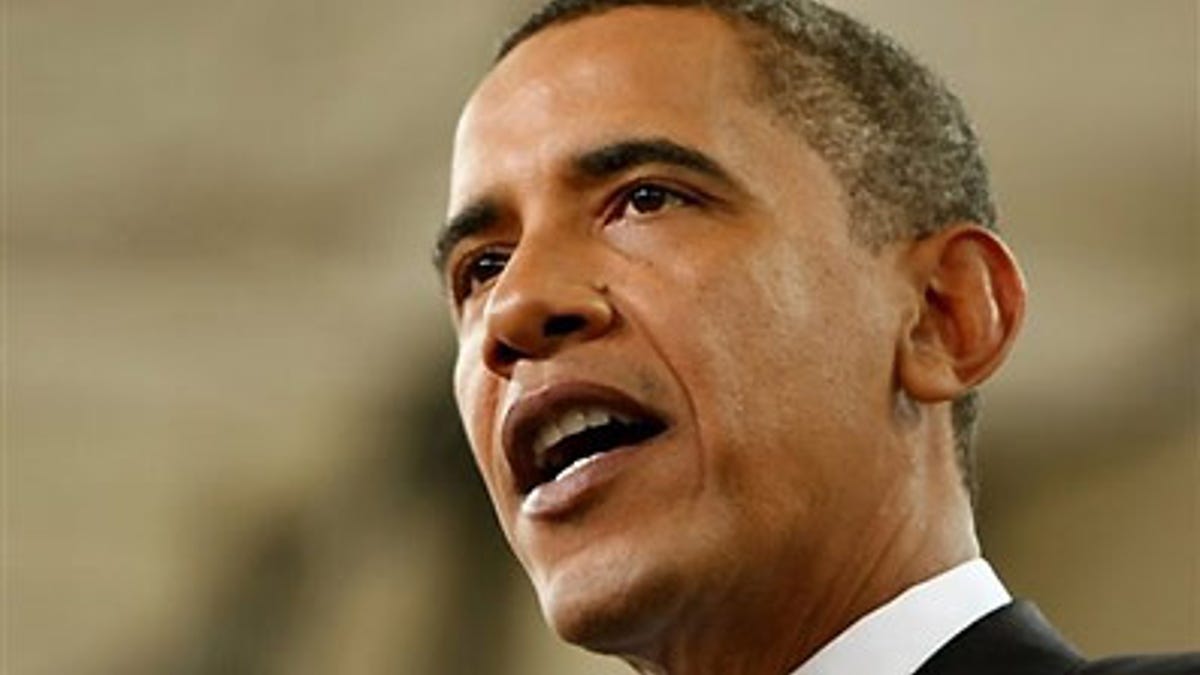
AP
America is at war, militarily and politically. The current situation we finds ourselves in with our commander-in-chief reminds me of a May 2007 article called “A Failure In Generalship,” in which author, Lt. Col. Paul Yingling, writes “Prussian military theorist Carl von Clausewitz noted that passion, probability and policy each play their role in war.”
Let me repeat. Our nation is at war, militarily and politically—and that’s where passion, probability and policy are so important for the president. As commander-in-chief President Obama is our top general and he also serves as the political “general” of the Democratic Party. By Yingling’s standards, Obama’s attempts at leadership so far are a study in failure: a failure in generalship.
Yingling, who served two tours in Iraq, another in Bosnia and a fourth in Operation Desert Storm, writes, “The greatest error the statesman can make is to commit his nation to a great conflict without mobilizing popular passions to a level commensurate with the stakes of the conflict.”
More than a year into his presidency, Obama has made that error on a number of “great conflicts” involving national and economic security. The toll it is taking is reflected in a new CNN poll in which 52 percent of Americans say the president doesn’t deserve reelection in 2012.
Near the end of January, a Rasmussen poll reported that only “thirty-eight percent of voters say the United States and its allies are winning the war on terror. Numbers that bleak haven’t been recorded in consecutive surveys since the middle of 2007.” A new military offensive in Afghanistan could improve that assessment, but what is especially galling the public is how the Obama administration is treating captured terrorists. In a Quinnipiac University poll, “American voters say 59-35 percent that 9/11 terrorism suspects should be tried in military courts rather than in civilian courts.” After the arrest of the “Christmas Day bomber”—who was read his Miranda rights, assigned a lawyer, and then stopped talking—fifty-eight percent of American voters in a Rasmussen poll said waterboarding and other torture techniques should be used on the suspect to get information: another rebuke to what Obama supports.
A recent Gallup poll found that, “sixty percent of Americans say President Barack Obama has not spent enough time on economic problems.” But putting that in perspective, a Rasmussen poll a few weeks ago determined that “fifty-eight percent of voters also believed the government has too much influence over the economy.” A scant nine percent believed that Obama’s proposed three-year freeze on discretionary government spending “would reduce the deficit a lot.” And fifty-eight percent “opposed the president’s health care reform bill in Congress.”
Yingling continues, “To prevail, generals must provide policymakers and the public with a correct estimation of strategic probabilities. The general is responsible for estimating the likelihood of success in applying force to achieve the aims of policy. The general describes both the means necessary for the successful prosecution of war and the ways in which the nation will employ those means.”
Once again, so far Obama is a study in failure: a failure in generalship. A recent NBC News/Wall Street Journal poll stated that, “only 35 percent [of Americans] say they’re confident the president has the right set of goals and policies, and 54 percent believe he has accomplished ‘very little’ or ‘only some’ of his first-year office goals.” A Marist College survey of registered voters has Obama at forty-four percent job approval, the lowest of his presidency.
Yingling writes that, “However much it is influenced by passion and probability, war is ultimately an instrument of policy and its conduct is the responsibility of policymakers.”
This is Obama’s challenge today. He is aggressively selling his supposedly new policy prescriptions to win the wars for economic recovery and against terrorism. But most of them resemble policies he came into office peddling, and the American people are not buying them.
Obama has three years left in his term and the political and military wars he is fighting will change considerably in their outcomes and scope. Will he discover new ways to build alliances, outflank enemies and achieve victories?
One day it’s down for Obama when moderate Democratic Senator Evan Bayh says he won’t run for reelection, and the next day it’s up for Obama when the Taliban’s top military commander is reported captured in Pakistan.
Whether the president can improve on his current record of failure will depend on three variables that we should closely watch: passion, probability and policy.
Communications consultant Jon Kraushar is at www.jonkraushar.net.
Fox Forum is now on Twitter. Follow us @fxnopinion.
